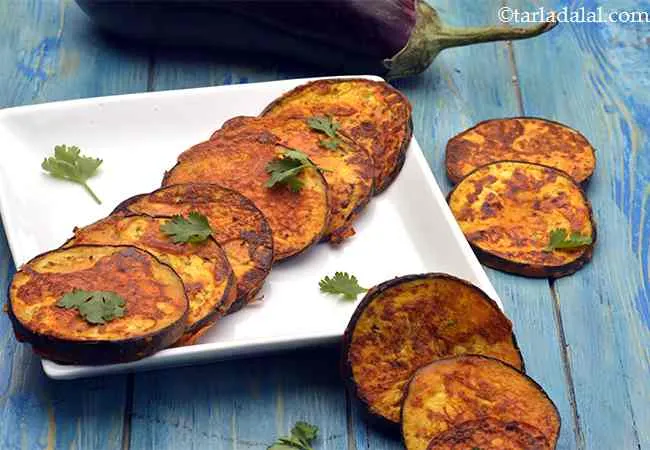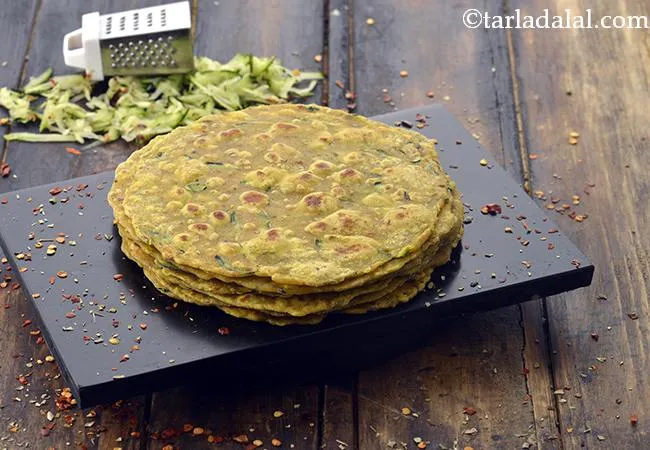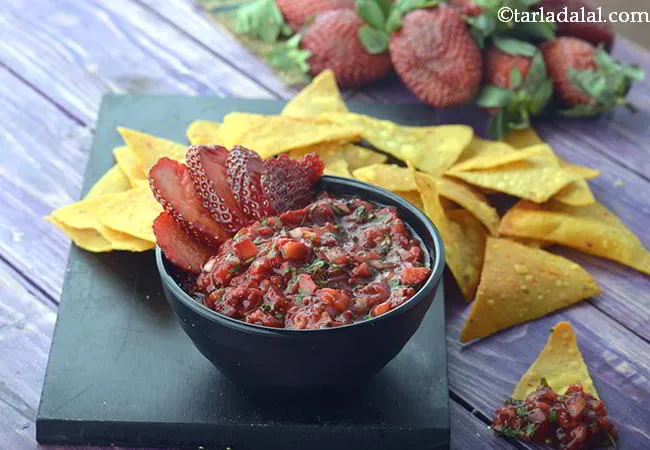This category has been viewed 111074 times
Healthy Indian Recipes > Diet for Dialysis
10 Diet For Dialysis Recipes

Table of Content
Dialysis Diet Recipes | Indian Diet for Dialysis | Indian Recipes for Dialysis Patients |
Dialysis Diet Recipes | Indian Diet for Dialysis | Indian Recipes for Dialysis Patients. Kidneys are a pair of important organ of our body mainly responsible for the removal of wastes and maintenance of fluid balance in our body. When the kidneys stop functioning or fail completely as it is termed as, the waste products build up in the body and hence dialysis is suggested by doctors. Dialysis is procedure which replaces the kidneys functions and filters the unwanted wastes from the body.
The two types of dialysis are hemodialysis and peritoneal dialysis. Weather former or later option is chosen by the patient, following a good dietary regime definitely helps avoid any further complications and help one live a superior life. The major nutrients to focused in a dialysis diet are sodium, potassium, phosphorus and fluid intake. The key here is to restrict the intake of all of these 4 nutrients and monitor your fluid intake closely with your doctor or a nephron dietitian.
Nutrients to Restrict for Dialysis
1. Sodium : It is necessary for maintaining blood pressure and fluid balance in the body. However since kidneys are unable to filter the excess sodium , it leads to high blood pressure, water retention and swelling on face, legs and hands and put a stress on the heart. Salt is one of the highest sources of sodium intake. Discuss with your dietitian on the amount of salt allowed per day. In general, avoid the ready-to-eat foods, pickles, bread, cheese, aerated drinks, papad, butter, biscuits, soy sauce and readymade masalas. Savour your food with herbs and other spices instead. Try and incorporate low sodium vegetables in your daily diet. They will put less stress on the kidneys. We have simple recipe of Baingan Bhaja – a Bengali style vegetable made healthy. Restrict the amount of salt being used in this recipe and instead use chilli powder and lemon juice as taste enhancers.
 Baingan Bhaja, Bengali Begun Bhaja
Baingan Bhaja, Bengali Begun Bhaja
2. Potassium : The most important function of potassium is to control the functioning of nerves and muscles. The excess potassium build up puts the heart at risk. It can cause irregular heartbeats and heart failure. Hence potassium restriction is necessary. Most fruits and vegetables are a good source of potassium. Avoid mango, banana, potato, avocado, plum, melon, sweet potato, spinach, kale, mushroom, kiwi, broccoli and dairy products.
However if you wish to use the vegetables mentioned in the ‘No’ list, one option is to follow the procedure of leaching. It involves removing some amount of potassium by soaking in water. Peel the vegetables and soak in water for an hour. Cut them and again soak in water for 4 to 5 hours and drain them. Wash them with water and cook them in excess water and drain that water again. The best is to rely on whole fruits like guava. You can also try Zucchini Thepla. But remember to keep a close watch on portion size of all the foods you include in your daily diet.
3. Phosphorus : is a mineral which works closely with calcium to build strong bones and with B vitamins to maintain normal heart rate. Since excess phosphorus is not always removed by dialysis, keeping a track of what you eat becomes very important. Foods rich in phosphorus are dairy foods, chocolate, nuts, soya and whole grains like oats, whole wheat, bajra, jowar etc. along with pulses and dals. Amongst dals masoor dal in limited quantities is suggested. Since most foods are a good source of phosphorus people undergoing dialysis are often supplemented with phosphate binders which prevent its build up in the blood by avoiding the absorption from food.
Talk to your doctor about these binders and follow the prescription to the core. Excess phosphorus can lead brittle bones and some heart problems. Choose a low phosphorus snack like Strawberry Salsa. Apple is another fruit which has a decent ratio of sodium, phosphorus and potassium suitable for those on dialysis. Include it in the form of Minty Apple Salad.
4. Fluids : One major function of kidneys is to remove waste by way of urine. When this is hampered, excess fluids in the blood leads to water retention (called edema) usually seen in the hands and feet. This may even lead to breathlessness. Some amount of excess fluid is removed during dialysis, but again removal of all of the excess fluid doesn’t get accomplished by dialysis. Hence it is truly essential to monitor the amount of water you drink. Do follow the suggestions mentioned by your doctor / dietitian. This limited amount should be enough to keep you well hydrated.
Overall these vegetables and fruits are the best to opt while on dialysis :
| Fruits you can have when on Dialysis | |
|---|---|
| 1. | Apple |
| 2. | Lemon |
| 3. | Strawberry |
| 4. | Pineapple |
| 5. | Grapes |
| 6. | Cranberries |
| 7. | Guava |
| 8. | Papaya |

| Vegetables you can have when on Dialysis | |
|---|---|
| 1. | Brinjal |
| 2. | Capsicum |
| 3. | Cabbage |
| 4. | Bottle gourd |
| 5. | Tendli |
| 6. | Zucchini |
| 7. | White radish |
| 8. | Onion |
| 9. | Lettuce |
| 10. | Cucumber |
| 11. | Round gourd |
baingan bhaja recipe | begun bhaja | healthy eggplant snack | how to make healthy begun bhaja | … More..
Recipe# 6340
09 January, 2020
calories per serving
herbed capsicum paratha recipe | healthy shimla mirch paratha | bell pepper paratha Indian breakfast | how to … More..
Recipe# 4267
20 May, 2021
calories per serving
An interesting combination of cabbage and grapes. Cabbage gives a nice crunch to this salad; the grapes give … More..
Recipe# 769
13 October, 2015
calories per serving
If tempered with the right spices and masalas, even a simple, low-salt dal recipe can make you drool! … More..
Recipe# 7369
03 January, 2018
calories per serving
minty apple salad recipe | healthy mint apple salad | apple pudina salad for hypothyroidism | mint and … More..
Recipe# 6268
26 September, 2025
calories per serving
Pineapple and cucumbers tossed with coriander and lemon juice furnish a storehouse of vitamin C which is extremely … More..
Recipe# 3314
06 December, 2024
calories per serving
Zucchini, a vegetable that you generally tend to associate with continental dishes and baked recipes, fits beautifully into … More..
Recipe# 6664
12 January, 2017
calories per serving
Maharashtrian mooli sabzi recipe | mulyachi bhaji | easy radish sabzi | healthy mooli ki sabji | with … More..
Recipe# 6605
02 September, 2021
calories per serving
grilled zucchini recipe | Indian style grilled zucchini | easy garlicky grilled zucchini | with 15 amazing images.grilled … More..
Recipe# 7271
31 October, 2022
calories per serving
strawberry salsa recipe | Indian style strawberry salsa | strawberry salsa at home | with 11 amazing images. … More..
Recipe# 6643
26 February, 2020
calories per serving
calories per serving
baingan bhaja recipe | begun bhaja | healthy eggplant snack | how to make healthy begun bhaja | … More..
calories per serving
herbed capsicum paratha recipe | healthy shimla mirch paratha | bell pepper paratha Indian breakfast | how to … More..
calories per serving
An interesting combination of cabbage and grapes. Cabbage gives a nice crunch to this salad; the grapes give … More..
calories per serving
If tempered with the right spices and masalas, even a simple, low-salt dal recipe can make you drool! … More..
calories per serving
minty apple salad recipe | healthy mint apple salad | apple pudina salad for hypothyroidism | mint and … More..
calories per serving
Pineapple and cucumbers tossed with coriander and lemon juice furnish a storehouse of vitamin C which is extremely … More..
calories per serving
Zucchini, a vegetable that you generally tend to associate with continental dishes and baked recipes, fits beautifully into … More..
calories per serving
Maharashtrian mooli sabzi recipe | mulyachi bhaji | easy radish sabzi | healthy mooli ki sabji | with … More..
calories per serving
grilled zucchini recipe | Indian style grilled zucchini | easy garlicky grilled zucchini | with 15 amazing images.grilled … More..
calories per serving
strawberry salsa recipe | Indian style strawberry salsa | strawberry salsa at home | with 11 amazing images. … More..

Related Recipes
Follow US
Recipe Categories
- Vitamin B12 Cobalamin Rich 35 recipes
- Low Calorie, Weight Loss Indian 423 recipes
- Low Cholesterol Indian 314 recipes
- Healthy Indian Breakfast 374 recipes
- Indian Diabetic 564 recipes
- Indian Pregnancy 461 recipes
- Zero Oil Indian 133 recipes
- Iron Rich Indian 268 recipes
- Healthy Indian Acidity 137 recipes
- Healthy Sabzi 108 recipes
- Healthy Indian Vegetarian Snack 276 recipes
- Healthy Heart Recipes 421 recipes
- Healthy Veg Indian Soups 74 recipes
- Calcium Rich Indian 373 recipes
- High Blood Pressure Indian Recipes 104 recipes
- Healthy Indian Salads Recipes 137 recipes
- Low Carb Indian Diet, recipes 163 recipes
- Hypothyroidism Diet 63 recipes
- Arthritis Diet 68 recipes
- High Protein Indian recipes 95 recipes
- Vitamin K Diet 42 recipes
- Fatty Liver Diet 39 recipes
- PCOS 136 recipes
- Gluten Free Veg Indian 197 recipes
- High Fiber 329 recipes
- Indian Cancer Patients 275 recipes
- Jaundice Diet 45 recipes
- Sprouts 61 recipes
- Typhoid 43 recipes
- Irritable Bowel Syndrome (IBS) 23 recipes
- Kidney Stone Diet 10 recipes
- Home Remedies 213 recipes
- Senior Citizen 195 recipes
- Healthy Indian Drinks and Juices 214 recipes
- Diet for Dialysis 10 recipes
- Gout Indian Recipes 17 recipes
- Potassium Rich 80 recipes
- Vegan 195 recipes
- Indian recipes to treat Vomiting 8 recipes
- Forever Young Diet, Anti Aging Indian Diet 255 recipes
- Antioxidant Rich Indian 445 recipes
- Vitamin B1 Rich Indian Foods, Recipes 101 recipes
- High in Omega 3 Fatty Acids 32 recipes
- Zinc Rich Foods 55 recipes
- Vitamin A Rich, Beta Carotene, Retinol 89 recipes
- Malaria Diet 19 recipes
- Magnesium Rich 94 recipes
- Vitamin C Rich Indian recipes 118 recipes
- Healthy Indian Dinner 85 recipes
- Low Veg Glycemic Index 86 recipes
- Lower Blood Pressure Salads 8 recipes
- Healthy Indian Lunch Recipes 29 recipes
- Lactation 25 recipes
- Vitamin E Rich 51 recipes
- Hyperthyroidism Diet 47 recipes
- Vitamin B3, Niacin Rich 41 recipes
- Post Surgery Diet 42 recipes
- Selenium 27 recipes
- Phosphorus Rich Indian Recipes, Foods 74 recipes
- Lower Blood Pressure Desserts Sweets 14 recipes
- Copper 15 recipes
- Foods Rich in Vitamin B2 Riboflavin 22 recipes
- Vitamin B6 Diet 36 recipes
- B Vitamins 231 recipes
- Vitamin B9 Rich Folate 50 recipes
- Marathoners, Endurance Athletes, Triathlete 225 recipes
- Manganese Diet 32 recipes
- Thalassemia 18 recipes
- Detox Water, Fruit Infused Water 42 recipes
- Lactose Free Dairy Free 22 recipes
- Omega 6 Fatty Acids 32 recipes
- Phytonutrients 51 recipes
- Chronic Kidney Disease Indian recipes 12 recipes
- Selenium1 0 recipes
- Quick Snacks / Quick Starters 385 recipes
- Quick Breakfast Indian 131 recipes
- Quick & Easy Indian Sabzi 117 recipes
- Quick Rotis and Parathas 46 recipes
- Quick Indian Sweets 139 recipes
- Quick Stir-Fries 51 recipes
- Quick Vegetarian Indian Soups 72 recipes
- Quick Chutneys 67 recipes
- Quick Vegetarian Rice, khichdi Recipes 56 recipes
- Indian Snacks Under 10 Minutes (Quick Veg Recipes) 44 recipes
- Quick Indian Dips, Gravies & Sauces 105 recipes
- Quick Veg Indian Pizza 17 recipes
- Quick Veg Pasta 25 recipes
- Quick Pickles / Aachar 25 recipes
- Quick Dals / quick Kadhis 29 recipes
- Snacks under 5 minutes 33 recipes
- Quick Healthy Recipes 43 recipes
- Quick Pressure Cooker 46 recipes
- Quick Desserts 48 recipes
- Quick 3 Ingredients 63 recipes
- Quick Indian Desserts 21 recipes
- Quick 4 Ingredients 41 recipes
- Quick 5 Ingredients 42 recipes
- Kids Tiffin Box 319 recipes
- Recipes for Toddlers (1-3 Years) 32 recipes
- Sweet Recipes for Kids 456 recipes
- Recipes for Baby (10 to 12 Months) 17 recipes
- Quick Indian recipes for Kids 72 recipes
- Indian Breakfast Recipes for Kids 194 recipes
- Recipes for Weaning (8 to 9 months) 22 recipes
- Snack Recipes for Kids 620 recipes
- Healthy Foods for Kids 196 recipes
- Recipes Kids can make 36 recipes
- Kids After School 794 recipes
- Kids Jar Snacks 67 recipes
- Finger Foods for Babies, Toddlers and Kids 76 recipes
- Kids Weight Gain 43 recipes
- Kids Wraps and Rolls 23 recipes
- Kids Veg Pasta 27 recipes
- Kids Brain Boosting 68 recipes
- Protein rich food for kids 71 recipes
- Recipes for Weaning 15 recipes
- Kids Pizzas 30 recipes
- Babies, Toddler and Kids Iron Rich Foods 31 recipes
- High Fiber Foods for Kids 40 recipes
- Kids High Energy Indian Foods 103 recipes
- Kids Noodles 37 recipes
- Kids Calcium Rich Indian recipes 92 recipes
- Babies recipes, 6 to 18 months 34 recipes
- Kids Recipes for Increasing Immunity 10 recipes
- Kids Weight Loss 58 recipes
- Teething Recipes for Babies 10 recipes
- Cereals and Pulses for 8 to 9 months Baby 8 recipes
- Weaning foods at 7 months 12 recipes
- Indian Teen 315 recipes
- Starters / Snacks 2139 recipes
- Indian Breakfast 820 recipes
- Main Course Recipes 928 recipes
- Indian Salads 385 recipes
- Indian Desserts , Sweets 985 recipes
- Indian Soups 249 recipes
- Indian Drinks (Chai, Lassi & More) 484 recipes
- Indian Dinner 903 recipes
- Indian Dinner1 0 recipes
- Indian Lunch 829 recipes
- Side Dishes 449 recipes
- Indian Travel Food 433 recipes
- Indian Barbeque1 recipes 22 recipes
- Frozen Foods, Indian Freezer Recipes 67 recipes
- Whole Wheat Recipes 56 recipes
- Indian Comfort Foods 212 recipes
- Dinner Menus 56 recipes
- Easy Indian Veg 70 recipes
- Innovative Indian Recipes 27 recipes
- No Cook Indian 37 recipes
- Advanced Recipes 10 recipes
- Cakes with Eggs 13 recipes
- Microwave 229 recipes
- Oven 619 recipes
- Indian Steamer Recipes 102 recipes
- Kadai Veg 407 recipes
- Indian Barbeque Recipes 43 recipes
- Sizzler tray 15 recipes
- Mixer 566 recipes
- Pressure Cooker 315 recipes
- Tava 647 recipes
- Non-stick Pan 1393 recipes
- Indian Freezer recipes, meals 57 recipes
- Appe Mould 18 recipes
- Pan 223 recipes
- Non Stick Kadai Veg 203 recipes
- kadai Indian 150 recipes
- Refrigerator 176 recipes
- Waffle Indian recipes 6 recipes
- Handi 12 recipes
- Juicer and Hopper 65 recipes
- Grill 31 recipes
- Toaster 21 recipes
- Gas Toaster 8 recipes
- Healthy Indian steamed 73 recipes
- No Cooking Veg Indian 335 recipes
- Vegetarian baked Indian recipes 381 recipes
- Boiled Indian recipes 129 recipes
- Deep Fry 261 recipes
- Indian Tawa 265 recipes
- Shallow Fry Indian 25 recipes
- Microwave1 172 recipes
- Saute 273 recipes
- Indian Pressure Cooker 171 recipes
- Stir-fry 101 recipes
- Roasting 0 recipes























